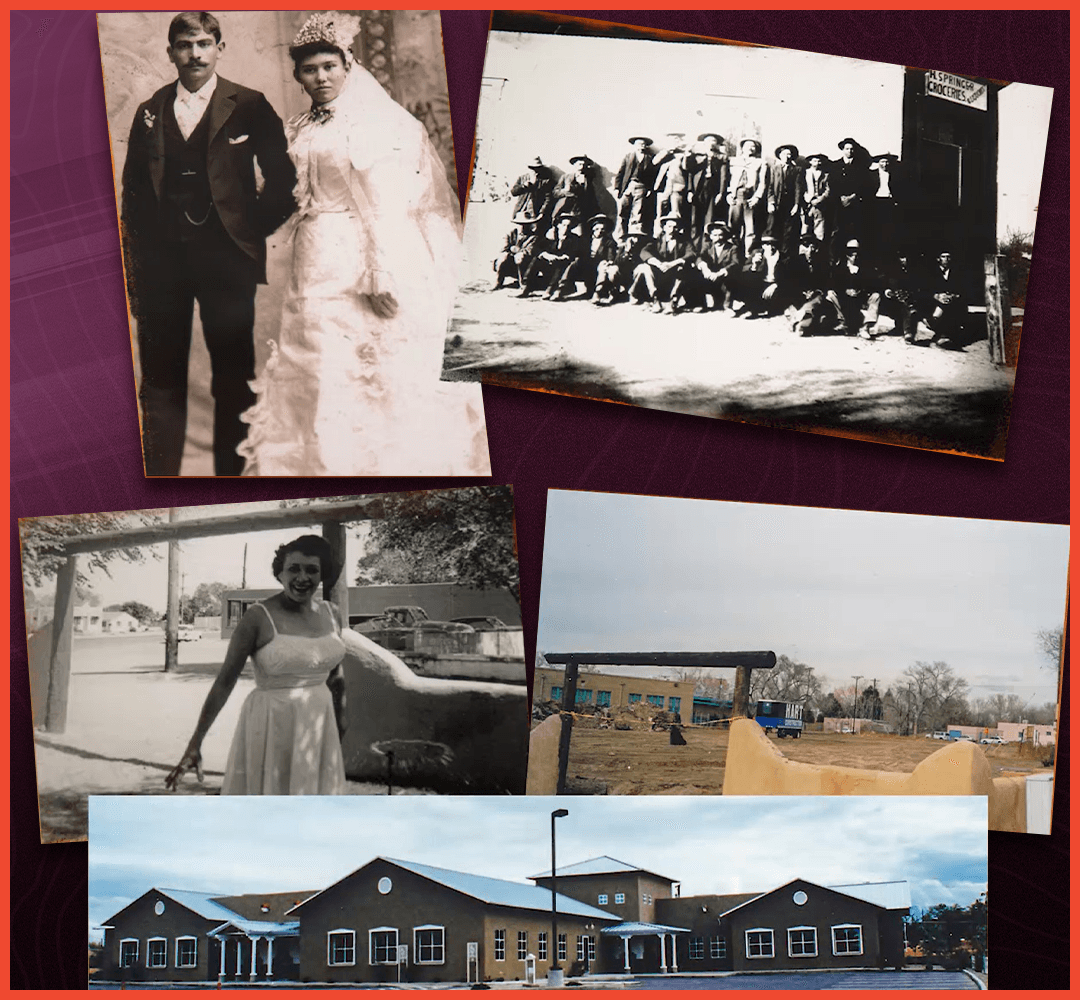
Albuquerque Premises Liability Attorneys
TYPES OF PREMISES LIABILITY CASES
Property owners have an obligation to maintain a safe, secure place for others. If they fail in these duties, visitors to their property face an increased risk of injuries and accidents, some of which can be serious.
After an injury, the last thing on your mind might be legal action. However, holding the responsible property owner accountable for his misdeeds not only helps in your recovery, it can also prevent harm to other people. That’s why Martinez, Hart, Sanchez & Romero, P.C. is so dedicated to premises liability cases. Because we live and work in Albuquerque, we take pride in the city and the great state of New Mexico. Part of this pride is holding property owners to a high standard and ensuring they follow all laws and guidelines regarding the maintenance and care of buildings.
To schedule a free consultation with our Albuquerque premises liability lawyers, contact us today at (505) 806-1780.
On This Page:
- What is Premises Liability?
- How Premises Liability Cases Occur
- Evidence Needed to Prove Premises Liability
- Premises Liabilty FAQs
- We Provide Legal Help to Clients
What is Premises Liability?
Premises liability refers to the legal responsibility a property owner or occupier holds for accidents, injuries, or damages that occur on their property.
Some common types of locations where these cases occur include:
- Retail stores and shopping centers
- Restaurants and bars
- Private residences
- Public parks and recreational areas
- Apartment buildings and rental properties
- Hotels and resorts
- Workplaces and office buildings
- Construction sites
- Parking lots and garages
- Entertainment venues
Premises liability revolves around the duty of care that property owners owe to individuals who enter their premises. This duty of care requires property owners to maintain safe conditions and warn visitors of any potential hazards or dangers on the property.
The extent of responsibility a property owner has typically depends on the status of the visitor, which is categorized as the following:
- Invitees: Invitees are individuals who are invited onto the property for the benefit of the property owner, often for business purposes. Customers in a store or clients in an office are classic examples. Property owners owe the highest duty of care to invitees. This includes regularly inspecting the premises, addressing hazards promptly, and warning visitors about any known dangers.
- Licensees: Licensees are individuals who have the property owner's permission to enter but typically do so for their own purposes rather than for the property owner's benefit. Social guests or friends invited over to someone's home are common examples. Property owners owe a reasonable duty of care to licensees, which entails warning them about known dangers that might not be immediately obvious.
- Trespassers: Trespassers enter the property without permission. Property owners owe the least duty of care to trespassers. However, there is still a minimal obligation not to intentionally harm trespassers and to avoid setting up traps or hazards that could cause serious injury. Property owners might also need to warn trespassers about hidden dangers that could cause severe harm.
When an injury occurs on someone's property, whether it's a business, private residence, or public area, the injured party may seek compensation for their injuries and damages if they can prove that the property owner's negligence or failure to maintain a reasonably safe environment led to the accident.
How Premises Liability Cases Occur
Many incidents can occur when a property is not kept up, including the following:
- Slip and Falls: Slick, slippery floors inside grocery stores and retail shops can cause significant injuries to shoppers. Problems with flooring, such as torn carpets, many also contribute to a person’s tripping hazard.
- Dog Bites: Dogs are considered personal property, so their owners are held responsible when they cause injuries by biting. Dog owners must keep in control of their animals at all times, whether on or off their property.
- Negligent Security: Property owners and occupiers have a duty to protect visitors from a foreseeable risk that a third person will injure a visitor. As the risk of danger by that third person increases, the property owners and occupiers’ duty to exercise care through proper security measures also increases.
- Swimming Pool Injuries: Swimming pools can be very hazardous, especially to young kids. Pool owners are obligated to take the proper precautions, such as covering their pool at night and restricting access by outside individuals, to prevent injuries to others.
- Cracked Sidewalks & Driveways: Cracks in concrete or asphalt pose a tripping hazard to friends, neighbors, and passersby. That’s why these deficiencies should be addressed as soon as they’re identified by the property owner.
- Carbon Monoxide Exposure: Carbon monoxide is deadly serious. It is a silent killer because it can cause great harm before anyone realizes its presence. It has no smell, taste, or color. A property owner has a duty to reduce the risks of carbon monoxide exposure by having a proper detection system throughout the property.
Evidence Needed to Prove Premises Liability
Property owners must be shown as having a duty of care to the injured person. This duty is established by their status as property owner, which means they’re obligated to provide visitors to their home or business reasonable protection from injury and harm.
Next, it must be established that the property owner breached their duty of care. For example, a property owner who neglects to fix a broken pipe that causes a water leak, which then causes a customer to slip and fall, could be held liable if it can be proved that the owner was aware of the issue but chose not to act.
Finally, the injured party must show a direct link between the injuries sustained and the property condition. This entails compiling evidence and presenting it to the court or insurance company deciding on the case.
If you've suffered an injury on private or public property, here are steps you should consider taking:
- Seek Medical Attention: Your health is the priority. If injured, seek immediate medical attention. Even if the injury seems minor, it's crucial to get checked by a healthcare professional to document the injury.
- Report the Incident: If the injury occurred on someone else's property, inform the property owner, manager, or relevant authority about the incident. Ensure that they document the incident in their records. For public property, notify the responsible municipal or government authority.
- Gather Information: Collect information about the incident, including photographs of the location, the hazard or cause of the injury, and any visible injuries you've sustained. Take note of any witnesses and their contact information.
- Preserve Evidence: Keep any items related to the incident, such as torn clothing, damaged belongings, or medical bills. These may serve as evidence if you decide to file a claim.
- Document Details: Write down details about the incident while they're fresh in your mind. Include the date, time, location, weather conditions, and what you were doing when the injury occurred. These details can be helpful if you pursue a legal claim.
- Contact Authorities if Necessary: If the injury was due to a criminal act or if there's an immediate threat to safety, contact the police or emergency services.
- Consult Legal Advice: Consider seeking advice from a premises liability attorney. They can evaluate your case, explain your rights, and guide you through the legal process if you decide to pursue compensation for your injuries.
- Follow Medical Advice: Adhere to medical instructions and attend follow-up appointments. Your medical records will serve as crucial evidence in any legal proceedings.
Premises Liabilty FAQs
What must I prove to succeed in a premises liability claim?
To prevail in a premises liability case in New Mexico, the injured party must demonstrate several key elements:
- The defendant owned, leased, occupied, or controlled the property.
- The defendant was negligent. This means the property owner knew or should have known about the hazardous condition and failed to repair or warn about it.
- The hazardous condition caused the injury. The plaintiff must establish a direct link between the unsafe condition and their injury.
- Damages resulted from the injury. This includes medical expenses, lost wages, pain and suffering, and other losses.
Each case is unique, and the plaintiff must provide evidence to support these elements, such as photos, witness statements, or maintenance records.
How does New Mexico's comparative negligence rule impact premises liability cases?
New Mexico follows a pure comparative negligence rule, meaning that a plaintiff’s compensation can be reduced by their percentage of fault in causing the accident.
For example, if you slip and fall in a store because the floor was wet but were also distracted by texting on your phone, the court might assign you 20% of the fault. If your total damages amount to $10,000, you would receive 80% of that amount, or $8,000.
This rule allows injured parties to recover damages even if they are mostly at fault, although the compensation will be proportionally reduced.
How long do I have to file a premises liability claim in New Mexico?
In New Mexico, the statute of limitations for personal injury cases, including premises liability claims, is three years from the date of the injury. Failing to file a lawsuit within this timeframe will likely result in the case being dismissed.
However, certain exceptions may extend or shorten this deadline, such as cases involving minors or government-owned properties. Therefore, you must consult an attorney as soon as possible to ensure you preserve your right to seek compensation.
Can I file a claim if I was injured on government property?
Yes, you can file a claim if you were injured on government property in New Mexico, but the process differs from standard premises liability cases. Claims against government entities are governed by the New Mexico Tort Claims Act, which imposes specific requirements and limitations.
For instance, you must provide written notice of your claim to the appropriate government agency within 90 days of the injury. Additionally, government entities have immunity in certain cases, so it’s essential to consult an experienced attorney to determine if your claim is valid.
What types of damages can I recover in a premises liability case?
Victims of premises liability accidents in New Mexico may recover various types of damages, including:
- Economic damages: These include tangible costs like medical bills, rehabilitation expenses, lost wages, and future earning capacity.
- Non-economic damages: These include intangible losses like pain and suffering, emotional distress, and loss of enjoyment of life.
- Punitive damages: In rare cases, where the property owner’s conduct was especially reckless or intentional, punitive damages may be awarded to punish the wrongdoer and deter similar behavior.
The specific damages available depend on the circumstances of the case and the severity of the injuries.
Do I need an attorney to handle a premises liability case in Albuquerque?
While it’s not legally required to hire an attorney, having experienced legal representation is highly advisable for premises liability cases. These cases can be complex, requiring a thorough understanding of New Mexico law, evidence gathering, and negotiations with insurance companies.
Our Albuquerque attorneys can help build a strong case, determine the full value of your claim, and advocate for your rights in court, if necessary. Without professional assistance, you risk undervaluing your claim or losing the case due to procedural errors or insufficient evidence.
We Provide Legal Help to Clients
Martinez, Hart, Sanchez & Romero, P.C. is proud to have the respect of our clients throughout New Mexico. We’re equally proud of our reputation among our peers, who often refer complex and complicated cases to our firm.
If you’ve suffered an injury because of derelict property conditions, our team of attorneys is here to help. Schedule a free initial consultation today by calling (505) 806-1780. If you’d like more information on our legal services, please contact us.

-
"I can't seem to say enough about the people at this law firm. I was treated with the greatest experience ever. My case wasn't a very large case, but, non the less I was treated with the upmost respect and treatment of a huge case."Christopher C.
-
"Not only are they highly competent, ethical, smart and efficient, they are very kind. They have provided the best representation and assistance imaginable and I would, without any reservation whatsoever, highly recommend this law firm."Dorian D.
"Not only are they highly competent, ethical, smart and efficient, they are very kind. They have provided the best representation and assistance imaginable and I would, without any reservation whatsoever, highly recommend this law firm."Dorian D.

Martinez, Hart, Sanchez & Romero, P.C. is a local law firm with local and national recognition for having the expertise to handle the toughest cases. Over a century ago, David B. Martinez’s grandparents realized their dream of building a general store at the corner of Rio Grande and Indian School. “A century later, David B. Martinez and F. Michael Hart built this law firm on the same corner of Rio Grande and Indian School where David’s family had built their general store.” The corner of Rio Grande and Indian School is now home to Martinez, Hart, Sanchez & Romero, P.C., which holds the same dedication to serving the needs of the surrounding community.






